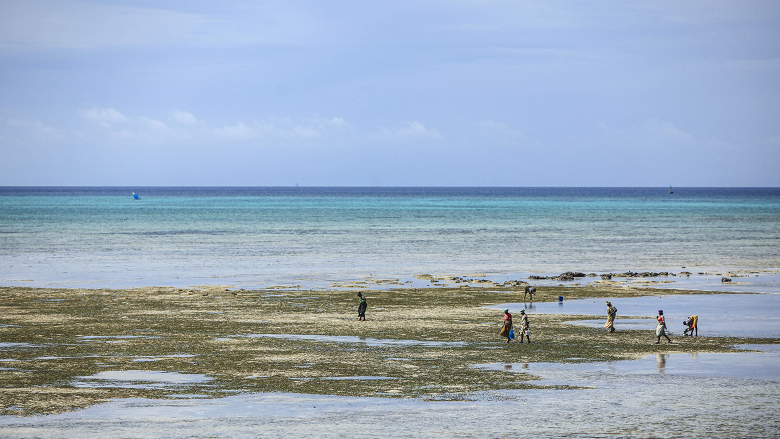Almost 90 percent of Tanzania's poor live in rural areas, and are highly dependent on depleting natural resources for food, fuel and fodder. In recent years, the World Bank introduced activities and programs to support the government of Tanzania in improving natural resource management and responding to climate change.
Led by Ann Jeannette Glauber, a World Bank team developed Tanzania's first climate change action plan—for agriculture—and risk assessment of key urban areas. They also helped assess the value of tourism to the country's economy and local communities. The environment is now a central part of the World Bank’s work in Tanzania, including activities in fisheries, nature-based tourism, and water resource management.
We recently spoke with Glauber about her experience in helping to manage fisheries better and protect coastal communities, both economically and to prepare for climate change:
From your experience, what is considered a best practice for fisheries in Tanzania and East Africa?
Strengthening small-scale fisheries. One piece of this is certainly around enhancing economic benefit, and trying to make sure communities and the broader Tanzanian economy are getting the full value of these fisheries. We are helping coastal communities benefit from improved management of the fish in their nearshore waters. People's livelihoods in coastal villages are heavily dependent, all or in part, on coastal resources, and there is a strong need to ensure the fish populations are sustainable. Moreover, coastal populations need ways to get more value from the fish they catch. Tanzania lacks facilities to process and export their fish. We are also helping Tanzania and other regional coastal states negotiate together as a block, to get more value from their marine and coastal resources. The role of the Bank in this case is to create a platform to provide and share knowledge, financing and convening power. Such an approach can encourage the private sector to make investments to better capture the value of fisheries.


